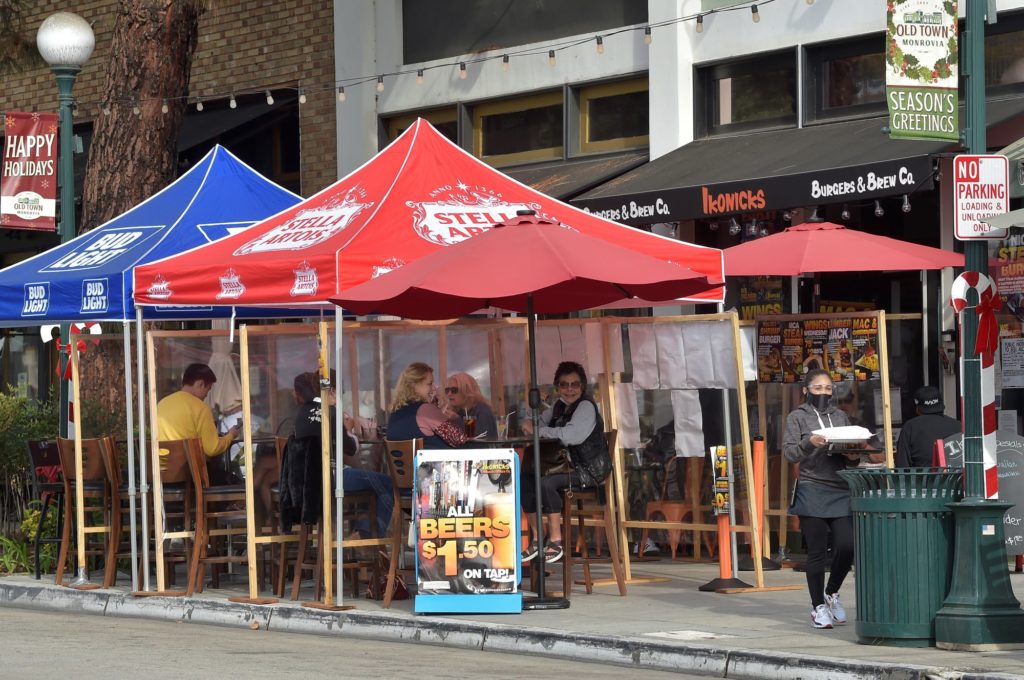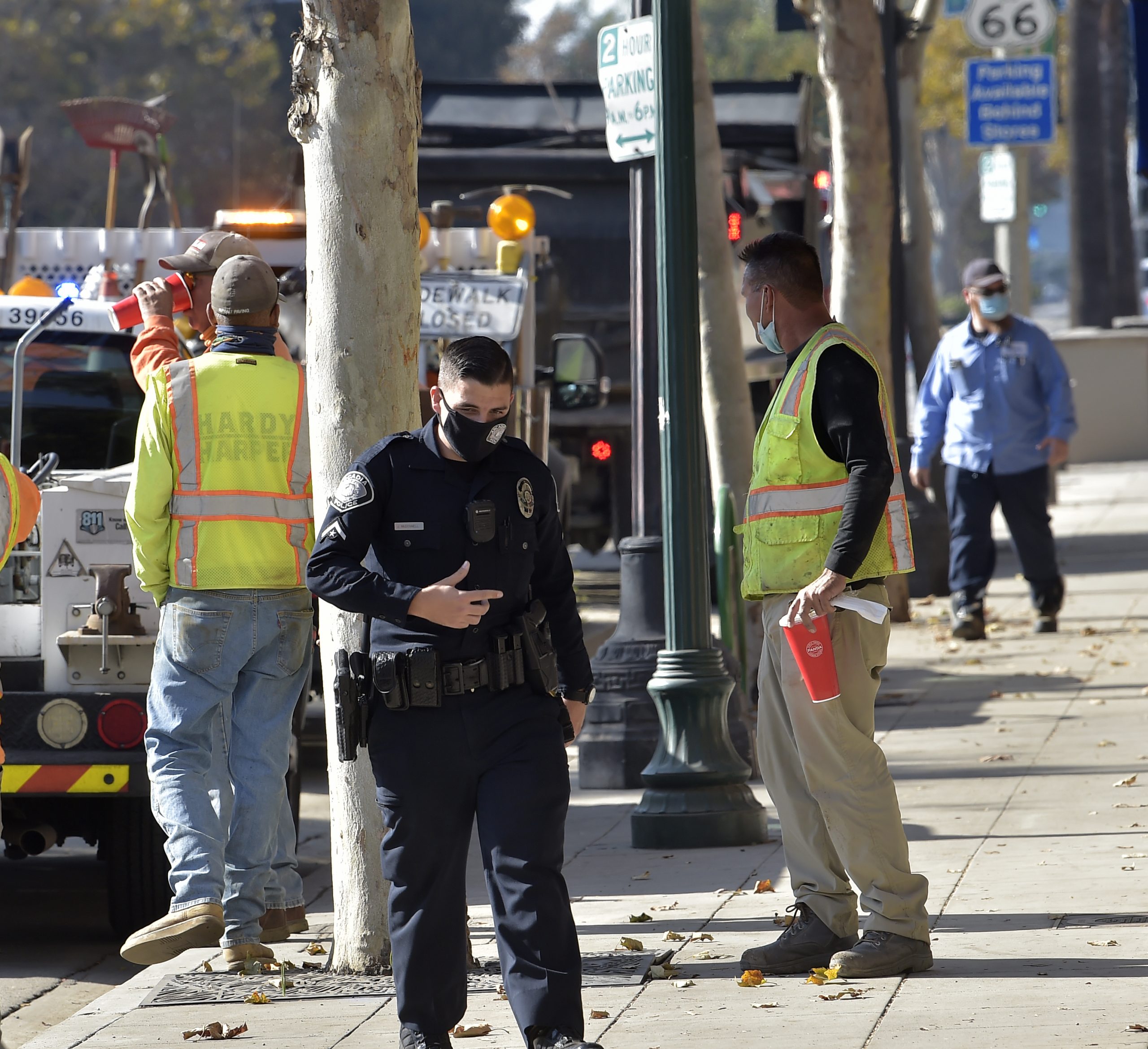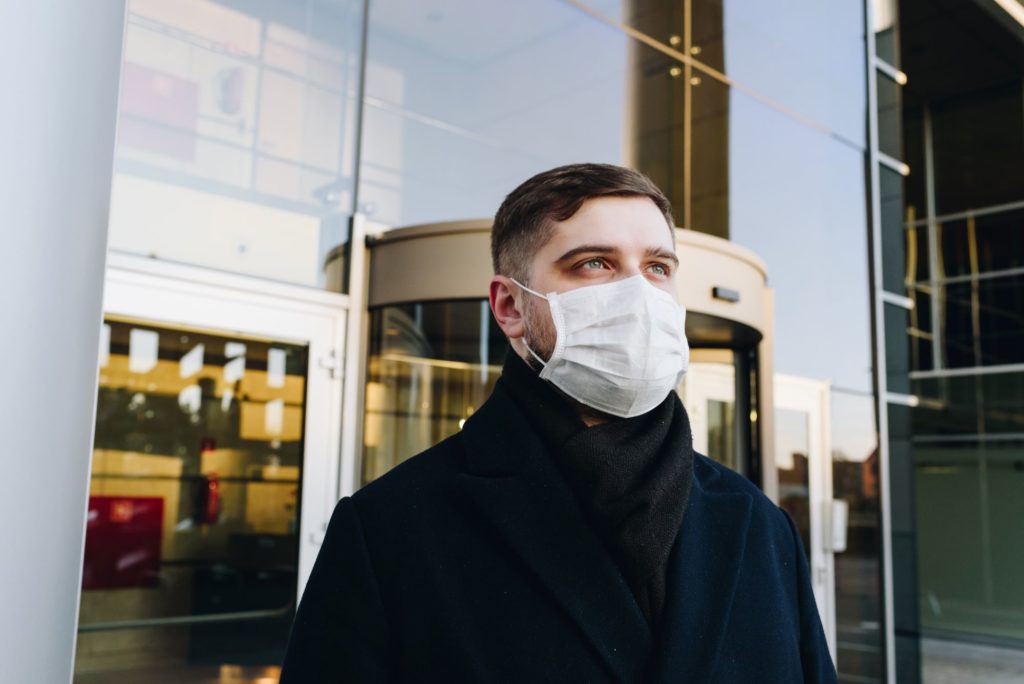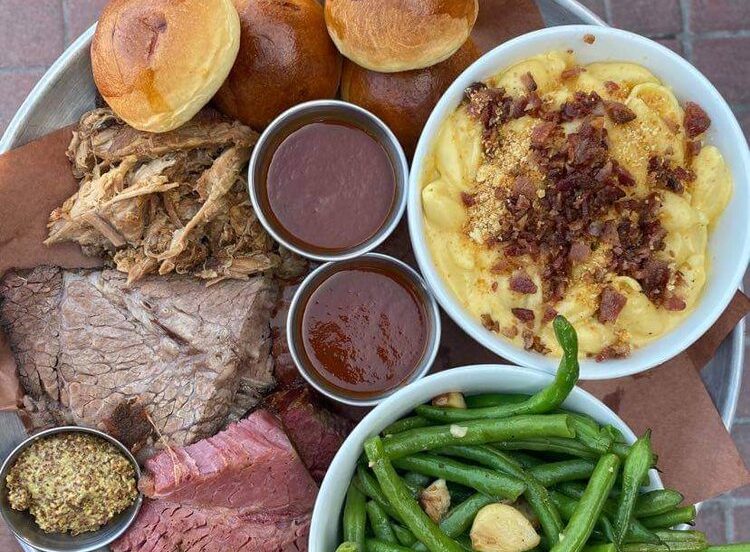
Owners, government officials and residents question the decision
By Terry Miller
Last Wednesday, L.A. County Public Health Director Barbara Ferrer said that by early December the county of 10 million people could reach a daily average of 4,000 cases that would require restaurants to only offer takeout meals. She claimed that the outcome was inevitable. On Sunday, it became a new harsh reality.
The county initially gave businesses three days to adopt new restrictions that forced eateries to reduce by half the outdoor capacity many established to stay afloat because indoor service was banned. Restaurants and nonessential retail were ordered to close at 10 p.m.
Then came Sunday and the county ordered what many had feared, a complete shutdown of outdoor dining by Wednesday at 10 p.m. — just in time for Thanksgiving.
Besieged by health department strict regulations, the already severely frustrated food business was handed what many see as a death sentence for their small businesses.
Reaction to the new order has been swift and heated.
“These proposed measures by the Department of Public Health will further devastate local businesses and employees who have been asked to shoulder an unfair burden this year,” said Supervisor Kathryn Barger, chair of the Los Angeles County Board of Supervisors, in a statement. “Businesses throughout the county have invested thousands of dollars to ensure safety for their employees and customers only to be punished for the recent surge they have done everything in their power to prevent.”
The supervisor pointed out that the Department of Public Health recommended bars for reopening operations without food service on June 18, when the county’s positivity rate was rising to more than 9% and hospitalizations were rising to more than 1,400. By comparison, as of Monday, hospitalizations are similar and positivity rate is at 6.7%.
Barger also pointed to data that shows Public Health has reported that between 10–15% of positive cases reported dining out with someone who tested positive, while more than 50% reported being at a private social gathering with someone who tested positive. “By closing restaurants who are in compliance, the county may adversely incentivize residents to host and attend more private gatherings without safety precautions in place,” reads the statement from Barger’s office.
Monrovia City Manager Dylan Feik penned a letter to the Board of Supervisors on Monday questioning the order to close outdoor dining.
“Since the initial Safer at Home Order was issued, our restaurants have worked tirelessly to adapt, mobilize, prepare and remain resilient. Cities have also implemented plans to expand outdoor dining to provide a necessary lifeline to our struggling business owners, all while practicing social distancing, procuring new equipment (PPE, dividers, tables, and staff). On behalf of our struggling restaurants, we respectfully request the Board to reconsider the new Reopening Safer at Work Order,” Feik wrote.
He claims the order is “unnecessary” as residents are encouraged “to spend time outdoors, to get fresh air, and practice social distancing.”
Feik also points to the money, time and resources spent by restaurants to provide outdoor dining while adhering to public health mandates. Calling the prohibition of outdoor dining “arbitrary,” Feik says “There is no nexus that community spread is occurring at these locations more so than ‘essential retail’ operations at retail stores, big box employers and so on.”
Restaurants are still struggling to recover financially from closures in the spring and “The impacts of a second closure may cause insurmountable financial hardships, causing these restaurants to go out of business permanently,” wrote Feik. “There is no longer federal stimulus. There is no state or county aid. Residents, employees, business owners are working hard to ‘learn to live’ with the pandemic and an arbitrary closure of one industry seems inappropriate.”
David Robkin, owner of Wingwalker Brewery in Monrovia, said he has exhausted his anger at the powers that be. “Honestly, after last week’s numbers were published and I extrapolated back 10-14 days to what was going on, I expected a shutdown,” Robkin told Beacon Media. “This is a little sooner and broader than I was expecting but I have exhausted my anger at the management of this situation. Bring on the shutdown. With a little bit of luck, we might see additional government relief to help mitigate the economic damage from their actions, but I don’t expect any.”
Robkin is not alone in this frustration. Ruby Bugarin, co-owner of Margaritas and Pepe’s Mexican restaurants, emailed her thoughts Monday morning.
“We are frustrated, angry and can’t believe we have to go through this all over again” Bugarin wrote. “I understand why they closed our indoor dining in the beginning of the pandemic. But now, after we have been conducting outdoor dining, safely, since July and after we have invested heavily in tents, heaters and all other equipment necessary to offer a safe environment for our customers, it is just devastating to our industry.”
Bugarin warns that the financial impacts of these closures have been disproportionately difficult for small independent businesses. “If the county is not careful, we will come out of this pandemic with only big corporations left over and that would be a disservice to our community and the economy that small independent businesses strongly contribute to,” she wrote. “It will be a sad environment where vibrant small businesses disappear. Our first restaurant was established by my parents in 1970, I would hate to close our two restaurants down after how long we have been around.”
Peggy Simonian, who owns three Lucky Baldwin’s pubs, told Beacon Media that she “feels like the authorities are punishing restaurant owners/workers and the entire chain of the workforce this effects for this uprise in numbers of the coronavirus.”
Simonian believes that suspending outdoor dining will drive people to meet inside homes where sanitation guidelines might not be adhered to as strictly as at businesses. “Everyone seems to think as long as we sit outside, we are ok, but sanitation levels are not kept in homes as they are in the outdoor dining areas — masks will not be enforced at homes.”
Urging authorities to allow outdoor dining, Simonian asked why restaurants are being targeted. “If the facts show that it is being transmitted by outdoor dining, then ALL OUTDOOR DINING must be stopped and that includes everyone inviting friends over and sitting outside — what’s the difference?”
One of Monrovia’s more prominent restauranteurs, Joey Kouchakian who owns both The Diplomat Eatery and Tavern and Café on Lemon, was “devastated” to hear the news. “I’ll have to furlough my 11 employees … How are they going to survive? How are we going to survive?” Kouchakian told Beacon Media during a telephone interview Monday.
“It’s a one-punch kill … a blowout. We’ve spent over $10,000 to comply with the new restrictions for outdoor dining so we could at least survive. Now, that is all over. This is not a solution and it most certainly will not be just three weeks. It’s absolutely devastating,” Kouchakian said.
He suggested that if all the restaurants in Monrovia refused to comply, the health department would be unable to keep up with the challenge they would face. “We need people to stand up and protest this order. Why target restaurants, when supermarkets and others can maintain their business model with people INSIDE?” Kouchakian pondered.
During public comment during a Pasadena City Council meeting, many residents successfully begged elected officials to not adopt the county’s lockdown restrictions on restaurants.
Kristin Poulsen said, “We the people can make the decision for ourselves and don’t need more oversight.”
Another deeply frustrated resident said she wanted more verification that the surge is not based on tests producing false positives. “Elon Musk had four tests on the same day and two were negative and two, positive. Stand up for our city, the business owners and community,” Barbara Anglin begged the council. (It should be noted that rapid antigen tests, like the ones Musk took, are more likely to yield false-positive results. According to the Food and Drug Administration, “positive results from antigen tests are highly accurate, but there is a higher chance of false negatives.” PCR tests look for genetic material of the virus, take longer to yield results and have a sensitivity rate of 95%.)
The Pasadena City Council decided to allow outdoor dining in restaurants, despite the county’s order. In a statement, Lisa Derderian, spokesperson for the City of Pasadena, said “The City of Pasadena will continue to assess [its] COVID numbers and work closely with Huntington Hospital and give as much advance notice as possible if the City’s Order is going to change in any respect.”
On Monday, the Los Angeles Department of Public Health confirmed the highest number of new COVID-19 cases with 6,124 new cases reported. From Oct. 31 through Nov. 13, the average daily cases have increased 108% and public health officials are not confidant that those numbers will decrease. Since Nov. 7, the county has experienced a 73% increase in COVID-19 hospitalizations.
“Our problem right now is we have such a high rate of transmission, there are so many people that are infected at this point, that it will take a lot of work to get us back down,” said Dr. Barbara Ferrer, director of public health.






